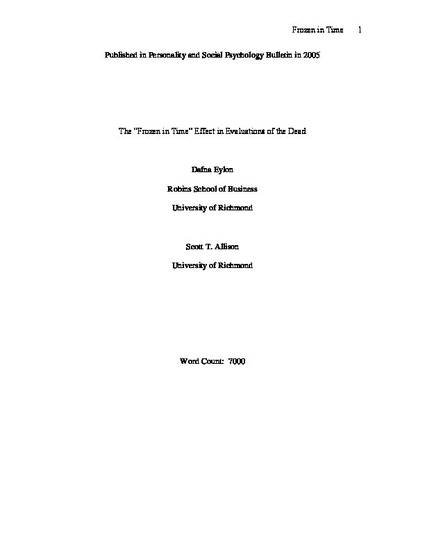
Article
The "Frozen-in-Time" Effect in Evaluations of the Dead.
Personality and Social Psychology Bulletin
(2005)
Abstract
Two experiments tested the hypothesis that evaluations of the dead are more resistant to change than are evaluations of the liv- ing. In Experiment 1, perceivers formed an impression of a target person who performed either a moral or an immoral action and then either died or remained alive. Perceivers were later given new inconsistent information about the target’s morality. The results revealed that perceivers’ original impressions of the target were significantly less likely to change in response to the inconsistent information when the target was believed to be dead than when she was believed to be alive. Experiment 2 replicated the effect in impressions of real-world targets. The implications of these findings for research on posthumous impression processes are discussed.
Keywords
- death positivity bias,
- hero worship,
- worship of the dead,
- frozen in time effect
Disciplines
Publication Date
2005
DOI
10.1177/0146167205277806
Citation Information
Dafna Eylon and Scott T. Allison. "The "Frozen-in-Time" Effect in Evaluations of the Dead." Personality and Social Psychology Bulletin Vol. 31 (2005) p. 1708 - 1717 Available at: http://works.bepress.com/scott_allison/35/
